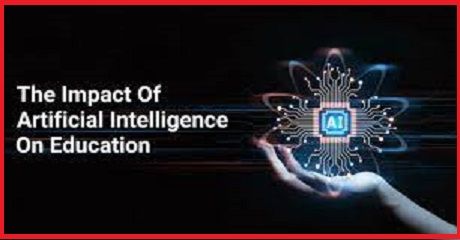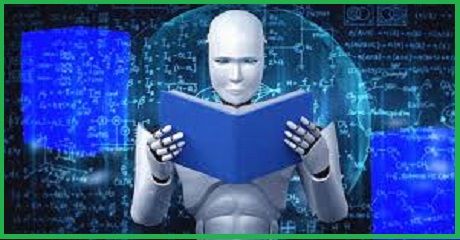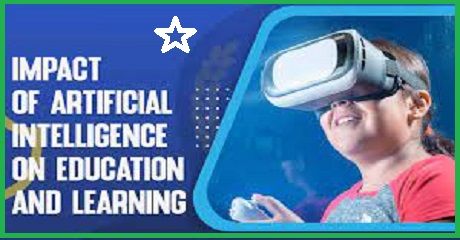The Impact of Artificial Intelligence in Education (AI) has emerged as a transformative force across various sectors, and education is no exception. As AI technologies continue to advance, their integration into educational settings is reshaping the landscape of teaching and learning. This write-up explores the profound impact of AI in education, emphasizing its potential to revolutionize traditional learning paradigms and enhance the educational experience.
1. Personalized Learning: Tailoring Education to Individual Needs
One of the significant contributions of AI in education is the facilitation of personalized learning experiences. AI algorithms can analyze individual student performance data, learning styles, and preferences to tailor instructional content. This adaptability ensures that each student progresses at their own pace, addressing gaps in understanding and reinforcing strengths. By catering to individual needs, AI-driven personalized learning fosters a more effective and engaging educational experience.
2. Intelligent Tutoring Systems: A 24/7 Learning Companion
Intelligent Tutoring Systems (ITS) powered by AI act as virtual tutors, providing students with personalized support and guidance. These systems use machine learning algorithms to adapt to students’ responses, offering targeted assistance in areas where they struggle. The availability of an AI-driven tutor 24/7 enhances accessibility and provides continuous learning support beyond traditional classroom hours, empowering students to learn at their convenience.
3. Automating Administrative Tasks: Streamlining Educational Processes
AI’s impact extends beyond the classroom to administrative tasks, automating routine processes and reducing the burden on educators. Administrative activities such as grading, attendance tracking, and resource allocation can be streamlined through AI applications, allowing educators to focus more on instructional design and student engagement. This efficiency in administrative tasks contributes to a more productive and time-effective educational environment.
4. Adaptive Assessments: Precision in Evaluating Student Proficiency
AI-powered adaptive assessments revolutionize the way students’ knowledge and skills are evaluated. These assessments dynamically adjust difficulty based on a student’s responses, providing a more accurate measure of their proficiency. By identifying specific areas of strength and weakness, adaptive assessments enable educators to tailor interventions and support strategies to meet individual student needs, ultimately enhancing the overall learning outcomes.

5. Enhanced Educational Content: AI-Infused Learning Materials
AI contributes to the creation of enriched educational content through tools like chatbots, virtual simulations, and interactive learning materials. Chatbots can provide instant clarification on concepts, virtual simulations offer immersive learning experiences, and interactive content engages students actively in the learning process. The integration of AI into educational content fosters creativity and innovation, making learning more dynamic and engaging.
6. Early Intervention and Support: Identifying Learning Challenges
AI algorithms can analyze data to identify patterns indicative of learning challenges or potential academic risks. Through continuous monitoring of student performance, AI can alert educators to intervene early, providing targeted support to students who may be struggling. This proactive approach enables timely interventions, preventing the exacerbation of learning difficulties and promoting a supportive educational environment.
7. Global Collaboration: Breaking Geographical Barriers
AI facilitates global collaboration and knowledge sharing in the educational realm. Virtual classrooms, online collaborative projects, and AI-driven language translation services break down geographical barriers, allowing students and educators from diverse backgrounds to collaborate seamlessly. This interconnectedness broadens students’ perspectives, fosters cultural understanding, and prepares them for a globalized world.

8. Ethical Considerations: Navigating Challenges Responsibly
While the impact of AI in education is undeniably transformative, it comes with ethical considerations. Privacy concerns, bias in algorithms, and the responsible use of student data are critical aspects that require careful attention. Establishing ethical guidelines and regulations ensures that AI is employed responsibly in educational settings, safeguarding students’ privacy and promoting fair and unbiased learning experiences.
Conclusion: Shaping the Future of Education
The impact of Artificial Intelligence in education is not a distant vision but a current reality reshaping the educational landscape. From personalized learning experiences to intelligent tutoring systems and adaptive assessments, AI is enhancing the quality, accessibility, and inclusivity of education. As the integration of AI technologies in education continues to evolve, educators, policymakers, and stakeholders must collaborate to harness its potential responsibly, ensuring that the benefits of AI contribute to a more equitable and innovative educational future.

Thanks for sharing. I read many of your blog posts, cool, your blog is very good.
Your article helped me a lot, is there any more related content? Thanks!
Your article helped me a lot, is there any more related content? Thanks!
Your point of view caught my eye and was very interesting. Thanks. I have a question for you. https://www.binance.com/en-IN/register?ref=UM6SMJM3
“I agree with your points, very insightful!”
Hello! I’m at work surfing around your blog from my new iphone 4! Just wanted to say I love reading your blog and look forward to all your posts! Keep up the superb work!
Thank you for your sharing. I am worried that I lack creative ideas. It is your article that makes me full of hope. Thank you. But, I have a question, can you help me?
r0ymzi
0gxqmp
Thank you for your sharing. I am worried that I lack creative ideas. It is your article that makes me full of hope. Thank you. But, I have a question, can you help me?
My brother suggested I might like this website. He was totally right. This post truly made my day. You cann’t imagine simply how much time I had spent for this info! Thanks!
I simply wanted to construct a brief comment to appreciate you for all of the stunning techniques you are giving out at this site. My time consuming internet lookup has finally been compensated with really good strategies to share with my visitors. I would say that most of us readers actually are unequivocally fortunate to exist in a fine website with many outstanding individuals with great things. I feel very happy to have come across the website page and look forward to many more awesome times reading here. Thank you once more for everything.
I’ve learn a few good stuff here. Definitely worth bookmarking for revisiting. I wonder how so much attempt you put to create this kind of great informative web site.
I will right away clutch your rss as I can not to find your email subscription link or e-newsletter service. Do you’ve any? Kindly permit me recognise in order that I could subscribe. Thanks.
I like this site very much so much excellent info .
https://t.me/s/Official_1win_kanal/683
Some really nice stuff on this internet site, I enjoy it.
I was examining some of your content on this internet site and I conceive this internet site is really informative ! Retain putting up.
Saved as a favorite, I really like your blog!
Your article helped me a lot, is there any more related content? Thanks!
I have been exploring for a little bit for any high-quality articles or blog posts in this kind of house . Exploring in Yahoo I eventually stumbled upon this website. Reading this info So i¦m glad to show that I’ve a very excellent uncanny feeling I found out just what I needed. I such a lot certainly will make certain to do not omit this website and provides it a glance on a relentless basis.
I’ll immediately grab your rss feed as I can’t find your e-mail subscription link or newsletter service. Do you have any? Please let me know so that I could subscribe. Thanks.
of course like your web site but you have to check the spelling on quite a few of your posts. A number of them are rife with spelling issues and I find it very bothersome to tell the truth nevertheless I will certainly come back again.
Thanks for sharing. I read many of your blog posts, cool, your blog is very good.
Merely a smiling visitant here to share the love (:, btw great design. “Justice is always violent to the party offending, for every man is innocent in his own eyes.” by Daniel Defoe.
I have been exploring for a bit for any high quality articles or blog posts in this kind of area . Exploring in Yahoo I eventually stumbled upon this website. Studying this info So i am satisfied to express that I have a very good uncanny feeling I came upon just what I needed. I such a lot undoubtedly will make certain to do not overlook this web site and provides it a look regularly.
Thanks for sharing. I read many of your blog posts, cool, your blog is very good.
It’s exhausting to search out educated people on this subject, but you sound like you know what you’re talking about! Thanks
Clear and concise
It¦s actually a nice and useful piece of information. I am glad that you just shared this useful info with us. Please keep us up to date like this. Thank you for sharing.